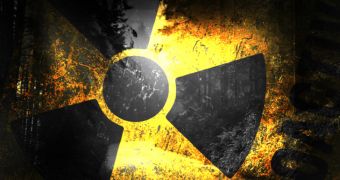Speaking at this year's 247th National Meeting & Exposition of the American Chemical Society, researcher Chris Neuzil told his audience that it might be possible to safely store nuclear waste in shale and leave it there for millennia without having to worry about unfortunate outcomes.
Thus, Chris Neuzil and his colleagues are quite convinced that said fine-grained sedimentary rock can prove a welcoming home for radioactive waste originating from various nuclear power plants across the world.
During said gathering, the researcher pointed out the fact that, presently, about 77,000 tons of spent nuclear fuel is deposited in above-ground storage facilities worldwide.
The problem is that, since this material is bound to remain dangerous for tens or hundreds – maybe even thousands – of years, a noteworthy amount of resources must go into keeping a close eye on the facilities where it is stored.
“Surface storage for that length of time requires maintenance and security. Hoping for stable societies that can continue to provide those things for millennia is not a good idea,” Chris Neuzil said.
What's more, he pointed out the fact that, even if such facilities are monitored 24/7, there is no guarantee that incidents will not occur. This is because above-ground storage sites are vulnerable to a series of natural disasters such as earthquakes and floods.
Chris Neuzil and his colleagues believe that the United States would do best to focus on identifying long-term storage sites for nuclear waste, and argue that shale, together with other clay-rich rock, might be just the thing the country needs.
The specialists say that, according to their investigations into the matter at hand, such rock formations allow almost no water to flow through them, Eurek Alert reports.
This means that the nuclear waste stored in them has very little to no chances to contaminate the environment, especially if the formations chosen to conduct such projects are watertight.
Chris Neuzil and his fellow researchers add that future glaciations are nothing to be concerned about either, simply because many shale formations have been documented to go through such episodes several times in our planet's history and yet remain unchanged.
“Damage to waste containers, which will be surrounded by a filler material, is also not seen as a concern,” the specialist explained in a statement.
Together with the specialists working with the Canadian Nuclear Waste Management Organization, Chris Neuzil is now looking into the properties of a site in Ontario and hopes to determine whether or not this region might serve to safely store nuclear waste for an indefinite period of time.

 14 DAY TRIAL //
14 DAY TRIAL //